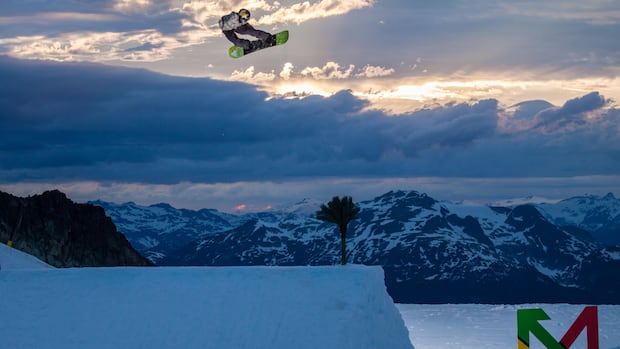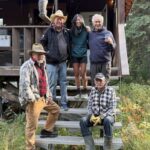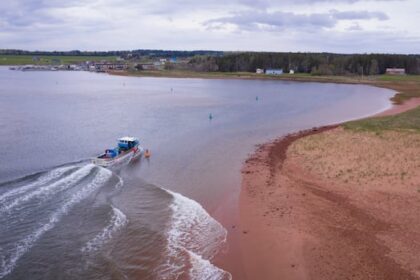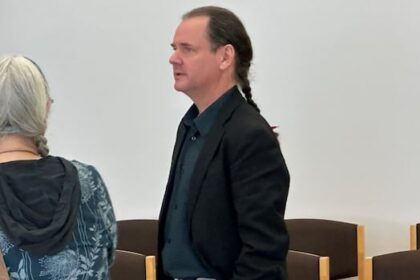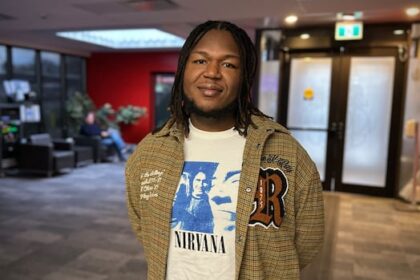This is the first of a two-part series examining how climate change is threatening the future of winter sport. On Thursday, you can read about a call to action from athletes, and what decision-makers in Canada and beyond are doing to address the issue.For more than two decades, young skiers and snowboarders have spent summers on Whistler Blackcomb’s Horstman Glacier, training with some of Canada’s top athletes on snow.Momentum Camps have been where Olympic dreams were born and lifelong love for sport bloomed. A young moguls skier could learn the ropes from Mikaël Kingsbury, the man they call the King of Moguls.The list of former campers who’ve gone on to reach the highest level in their sport is a long one: from Alex Bilodeau, a two-time Olympic gold medallist in moguls, to snowboarder Cassie Sharpe, who owns both Olympic gold and silver, to Jennifer Heil, an Olympic gold medallist who will be Canada’s chef de mission at the upcoming Winter Olympics in Italy, just to name a few.Beyond creating champions, the goal was to expose kids to mentors who model healthy lifestyles, according to John Smart, the two-time Olympian and 13-time World Cup medallist in freestyle skiing who created Momentum Camps after returning from the 1992 Olympic Games.“There [are] so many thousands of kids that came through the program, and truly went on to be superstars and successes,” Smart said.But with the glacier melting fast, summer skiing and snowboarding on Horstman Glacier disappeared in the summer of 2024, when the mountain resort deemed it wasn’t safe to operate during the warmer months. Gone are the camps that mixed eager kids with elite athletes.Safety issues caused by melting prompted the end of summer skiing on the Horstman Glacier. (Submitted by Momentum Camps)It also left some of the top athletes with nowhere to train in Canada during the summer. Instead, they often have to look to Europe, a shift that’s cost more money and disrupted athletes’ lives.The end of summer skiing was a stark reminder of the existential threat looming over winter sports: the world is warming, and fast.“You can’t help but think about it daily, particularly in the context of what we’re talking about, where a major training centre has been impacted,” said Peter Judge, CEO of Freestyle Ski Canada.A 2024 study commissioned by the International Olympic Committee found the number of locations with the weather to host the Winter Olympic and Paralympic Games is shrinking rapidly. It found just half of the 21 previous Olympic host cities would be suitable to host by the 2050s, due to a warming planet.It’s a reality the ski and snowboard world is already seeing up close, with more and more competitions cancelled or scaled down for athletes’ safety.“We’re seeing more and more where the reliability of early season events sits very tenuously,” Judge said. “Before, there was never a question about December events happening, and now it becomes a question every year as to whether they’ll happen.”The larger issue of our warming planet isn’t one the ski and snowboard world can address alone.It’s the topic of meetings among world leaders and negotiators at the UN Climate Conference, COP30, underway now in Brazil.On Horstman Glacier, Smart believes he’s found a way to bring back summer skiing. But it’s a solution that remains more than two years away. It also won’t come cheap, but he believes it’s worth it.“The grassroots is what we’ll lose the most if this goes away and doesn’t come back,” Smart said.Safety prompted end of summer skiingGlacier summer camp operations were shut down after “a thorough assessment of conditions on Horstman Glacier and the Showcase T-bar area” showed they could no longer be safely operated.“This decision was driven by the state of the glacier and the impact caused by glacial melt,” Dane Gergovich, a spokesperson for Vail Resorts — the American company that took over Whistler Blackcomb in 2016 — said in a statement. The company declined an interview request.“The snowpack on Horstman Glacier, which is impacted by glacier melt and lack of year-over-year snowfall, is the primary factor — this limits terrain, causes rock falls, impedes safe access for patrol, and has eliminated our ability to safely operate lift access into the area during the summer season.” This Saturday, Just Asking wants to know: What questions do you have about Canada’s role in global climate change action? Fill out this form and send us your questions.Gergovich said the company understands the environment is its business, and with it comes “a special responsibility to protect it,” referencing a pledge to achieve a zero net operating footprint by 2030.Behind the scenes, Smart has met with the mountain to discuss the possibility of moving snow making higher up the glacier.Olympian John Smart has a plan to bring back winter skiing on the Horstman Glacier, but it’s at least two years away and won’t come cheap. (Submitted by Momentum Camps)There’s also snow farming, where you pile snow and blanket it strategically to preserve it over the summer, though Smart is hopeful they’d be able to make enough snow to not have to blanket the whole glacier.“They do it all over the mountain, snow making,” he said. “They just have never had the need to have it up that high in the alpine. But as global warming continues, the whole idea of moving snow making up higher and higher is going to naturally occur. It’ll benefit the mountain. There’s benefits ecologically too, having the watershed effect, keeping snow up in the glacier longer for the trickle down effect of water in the ecosystem.”‘Astronomical’ cost to move trainingIt’s an idea that Johan Eliasch would endorse. The CEO of the International Ski and Snowboard Federation (FIS) made climate the centrepiece of his bid for president of the International Olympic Committee earlier this year. He lost to Kirsty Coventry, who took the top post in sports back in June.“Summer skiing actually has a positive impact on the preservation of glaciers because, if you compact the snow, it actually stays longer,” Eliasch said in an interview with CBC Sports.WATCH | Eliasch on sustainability and climate change:On sustainability and climate change with FIS president Johan EliaschWith a changing climate, instability and economic considerations, what does the future of ski and snowboard sport look like? Our Karissa Donkin looks for answers from the International Ski and Snowboard Federation (FIS) president Johan Eliasch.It’s got support from Freestyle Ski Canada, too.Judge couldn’t put an exact price tag on how much it has cost to lose access to summer skiing on the Horstman Glacier. Safe to say, it hasn’t come cheap.“In Canada, we’re dealing with our facilities,” he said. “The water ramp and those kind of facilities, we own them, so the cost for our athletes is quite low. When we’re going to use a third party’s [facilities] in another country, we’re paying a premium, and just that piece alone is astronomical.”The question is, who will pay for a solution to bring summer skiing back to Horstman Glacier?Vail Resorts didn’t provide any comment on the prospect of snow making higher on the glacier and whether that could lead to the return of summer skiing.Smart said costing on a possible project is still underway, and the mountain would likely be looking for partners to help foot the bill.“It would be a sustainable, long-term training venue that would not be reliant on weather,” he said. “That’s the goal. It’s quite a big goal from that point of view and something that I really hope Whistler Blackcomb and Vail sees and takes a leadership role on and goes, ‘Yeah, this could be revolutionary for the whole ski industry,’ which is their business.”The other issue is that creating snow requires water and energy.Preserving what we have, and trying to fix what we’ve already lost, could come with a carbon cost.“It’s really walking that fine line between the two, knowing that inevitably, you can’t do everything at absolute zero,” Judge said. “But it’s finding that balance between, we’ll preserve this kind of lifestyle and the kind of things that are important to us. And then as well, how can we do that in a very conscientious way and ensure that we’re taking really good care of the things that are around us that we do have the luxury to be able to enjoy?”’Part of who we are’The project on the Horstman Glacier hasn’t come across the desk of federal Secretary of Sport Adam van Koeverden, but the issue of climate change and how it affects sports on snow is certainly on his mind.While he made his career as an athlete on the water, he loves cross-country skiing.Smart’s project to bring summer skiing back to Horstman Glacier hasn’t come across the federal secretary of state’s desk yet. (Submitted by Momentum Camps)”They are part of Canadiana and part of who we are, and we want to make sure that they continue to be possible in Canada,” he said in an interview with CBC Sports.From a tourism perspective, he said the government wants to make sure Whistler Blackcomb can continue to host important events, in season and out.He’s also had discussions with climate action group, Protect Our Winters, which counts a number of Canadian athletes among its ranks. That group acknowledges both that climate change is impacting the sports we love, but also that there can be a carbon footprint involved in those sports.”It’s a dual responsibility to make sure that we’re finding solutions for sport to co-exist in the modern context while also lowering the carbon footprint in the activities that we love,” van Koeverden said.
How climate change is threatening the future of winter sport
